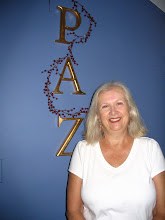Every child is different, so is every parent. Virginia Satir said that in a healthy family every person, adult or child, has the right to their own feelings, their own beliefs, their own goals, their own dreams, their own weaknesses, etc. You cannot do things their way, just as you will find they can't do things your way. The less you try to mold them to what you feel will work for them, the more you will see them blossom into their own unique selves. You will find more helpful healthy family information in her book Satir Step by Step - A Guide to Creating Change in Families.
 This is incredibly tough for many parents who feel that they know what's best for their child. They often feel that if their children would just do what their parent knows is best for them,that all will be well. What's missing in this senario is that your child never gets to find out their own way, and learn to trust themselves. These parent feel that they know what clothes their kids should wear, what classes they should choose, even what career they should have.
This is incredibly tough for many parents who feel that they know what's best for their child. They often feel that if their children would just do what their parent knows is best for them,that all will be well. What's missing in this senario is that your child never gets to find out their own way, and learn to trust themselves. These parent feel that they know what clothes their kids should wear, what classes they should choose, even what career they should have.My father was a depression child. He felt that studying business was the only way to go to be independent and secure. He felt that my choice of psychology courses were "popcorn courses" and had no validity. He choice for me was to get an MBA and work in the business world. I would have been SO unhappy if I followed his choice for me, rather than my choice for myself, but it took fights, struggles and getting ridicule from him as I tried to follow the path that I felt was right for me.
A parent's message to their child in this type of circumstance says that "my way is right for you, your way is wrong". It's hard and insecure enough growing up without that. And how do you learn to trust yourself if you can't live your own choices. This senario sets up with kids feeling controlled and parents not feeling respected. A helpful book on communication with your kids is: How to listen so your children will talk, and talk so your children will listen.
This said, however, parents have to keep their children safe. The fights you'll pick with your child, hopefully, will have their safety a top concern. My belief is that parents need to help kids understand why they're choosing their choices, and to process what are the results of their choices. That way you're helping them ask themselves key questions to figure out what works and what doesn't. They will probably only be able to do this with you if they don't fear judgment or ridicule.
When your "children" are grown, and no longer need a "parent", they will, hopefully, still want a relationship with you. Not to be told how to do things, but to share their lives with you.

